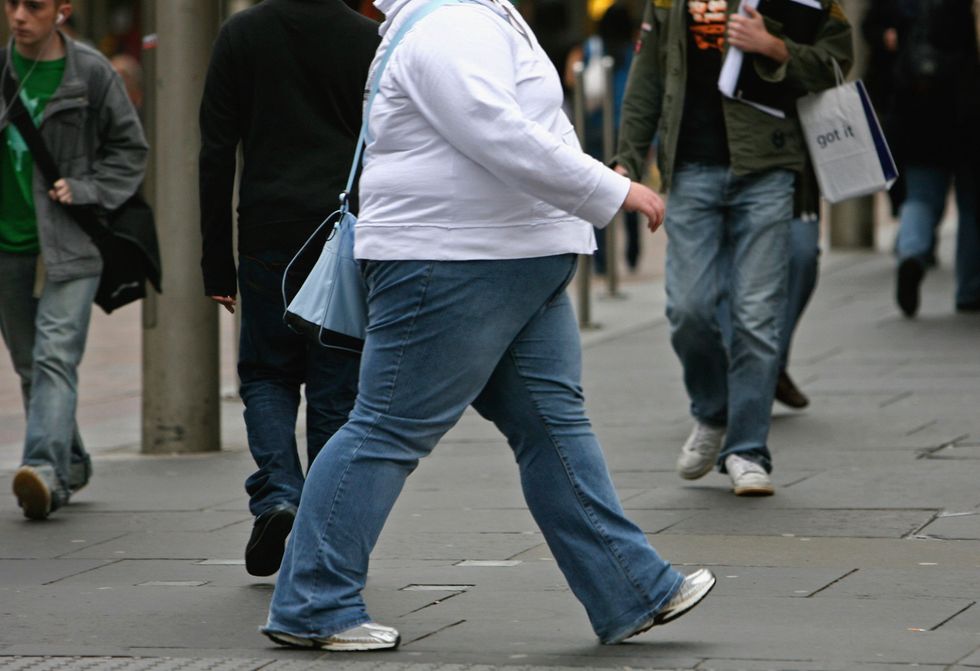Obese people twice as likely to be off work as 'sick-note culture' costing UK £98bn a year

Severely obese adults were 2.5 times more likely than healthy adults to have had at least one week off with poor health in the past year
Don't Miss
Most Read
Obese people are twice as likely to take time off work, new data has revealed.
Data covering millions of workers across Europe found people take more sick days the heavier they are.
It is believed the situation owes to complications including joint pain, diabetes, depression and heart disease.
Severely obese adults were 2.5 times more likely than healthy adults to have had at least one week off with poor health in the past year.

Severely obese adults were 2.5 times more likely than healthy adults to have had at least one week off
|GETTY
Absence rates were also 22 per cent higher among people who were overweight but not obese.
The European Congress on Obesity in Venice, who were presented the study, claimed the UK was “among the worst” impacted of the 28 countries examined.
Health Economics and Health Policy Research Group at the Institute for Advanced Studies in Vienna reached its findings after assessing national survey data from 122,598 people, representing a population of 147 million working-age people across 26 European countries.
The lead author Siegfried Eisenberg said obesity-related absenteeism was a “serious problem for the UK” adding that “the degree of obesity really matters in increasing the probability of being absent from work”.
LATEST DEVELOPMENTS:
Obesity is fuelling economic problems for the UK
|GETTY
Dr Thomas Czypionka, a co-author, said severe obesity means people are “increasingly excluded from contributing to society” adding: “The heavier you are, you become hindered in your daily activity and this also influences your ability to be productive.”
Workplace absences in the UK have soared in recent years, with the number of sick notes doubling in the past decade.
The situation risks costing an estimated £33billion a year to productivity.
Obesity has also steadily increased in recent year, with a separate report from the UK Health Security Agency saying: “Over the last 26 years the BMI curve has gradually shifted to the right for both men and women indicating an increasing number of adults with a higher BMI. ”

Obesity is estimated to the cost the UK £98bn a year, roughly four per cent of GDP
|GETTY
The UK also has the third highest level of obesity in the Organisation for Economic Co-operation and Development.
Two-in-three British adults are either overweight or obese.
Obesity is estimated to the cost the UK £98bn a year, roughly four per cent of GDP.
Most of the cost is eaten into by lost productivity and the direct cost to the NHS of related conditions.

Two-in-three British adults are either overweight or obese
|GETTY
Katharine Jenner, director of the Obesity Health Alliance, said: “This research lays it bare — high rates of obesity related disease is driving down economic productivity, with devastating economic impacts.
“Prioritising the nation’s food-related ill health is vital for any government serious about improving wellbeing, increasing growth, and ensuring the sustainability of the NHS.”
A Government spokesman said: “Obesity costs the NHS around £6.5billion a year, and we are taking firm action to promote healthier options and reduce levels of obesity.
“Our £2.5billion Back to Work Plan will help over a million people, including those with long-term health conditions associated with obesity, to break down barriers to work.”











